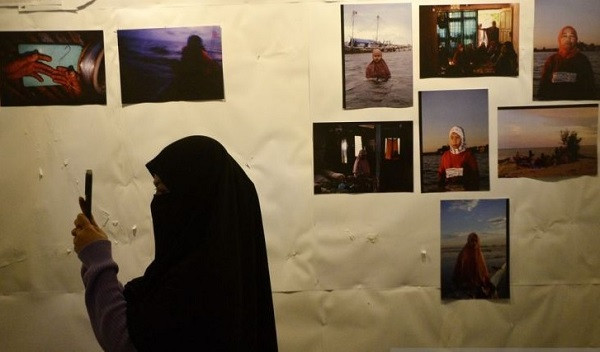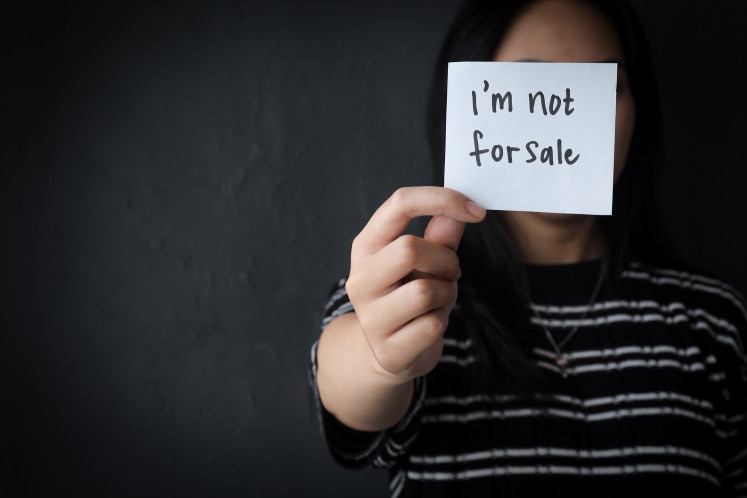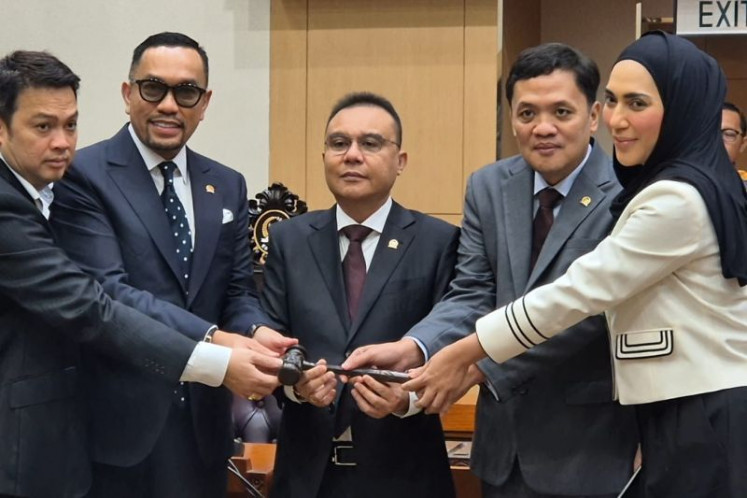Popular Reads
Top Results
Can't find what you're looking for?
View all search resultsPopular Reads
Top Results
Can't find what you're looking for?
View all search resultsWomen should be prioritized in anti-terror efforts: Activists
As people around the globe prepare to welcome International Women's Day 2024, themed “Invest in Women: Accelerate Progress”, two women's rights activists have highlighted the importance of clamping down on radicalization and terrorism by focusing on women and their roles at home and in communities, particularly in educating the young.
Change text size
Gift Premium Articles
to Anyone
W
omen should be more involved in counterterrorism and de-radicalization initiatives, according to prominent women’s rights activist Siti Musdah Mulia, who underscored that women had a key role in educating their children and the younger generation.
In the lead-up to International Women’s Day on March 8, this year themed “Invest in Women: Accelerate Progress”, the struggles of women around the world have become more visible, especially in these times of increased conflicts, primarily due to the ease with which social media has opened windows into people’s lives.
Musdah, who is also a scholar at Syarif Hidayatullah Islamic State University (UIN), said it was particularly important to empower women who lived in communities that were especially susceptible to violent extremism and terrorism, pointing out that terrorist groups often targeted mothers who played a vital role in shaping their children’s worldview.
“Women must be a primary target for counterterrorism and de-radicalization initiatives, because they are often seen as the figures closest to a child's life,” Musdah said on Wednesday, as quoted by state-owned news agency Antara.
In the Indonesian context, she expressed concern over how vulnerable women were being radicalized through their inclination to explore religious teachings.
It was thus important to provide women with proper religious education, she emphasized.
In Muslim-majority Indonesia, where different branches of Islam existed alongside other faiths across diverse cultures and with few distinctions in the mass media, it was harder for authorities to stop aberrant religious views that might lead to radicalism and violent extremism.
Read also: Involve women in terrorism preventionBy and large, the expectations of Indonesia’s traditionally patriarchal society imposed on women to show absolute submission and obedience had left them with little space to question or express dissenting opinions, Musdah explained.
This indoctrination, Musdah said, made them more susceptible to manipulation.
“It is therefore incumbent on the government, but also on public figures, religious scholars and families as the smallest building blocks of a community, to take on the role of instilling the ability [in women] to critically analyze narratives and arguments,” she asserted.
Advocating for a shift beyond ad-hoc programs, Musdah stressed the need for comprehensive public education that “go beyond public discussions” and targeted teachers, housewives, businesses and corporate groups.
Last month, women’s rights activist Yuniyanti Chuzaifah drew attention to the connection between Indonesian women and terrorism in both the public and private spheres.
An executive of the Asian Muslim Action Network (AMAN) Indonesia, Yuniyanti noted how women were vulnerable to radicalization due to power imbalances in the home.
She also noted that women who were repeatedly victimized could eventually become perpetrators themselves. To understand this phenomenon and the role of women in terrorism, she called for an intersectional approach to social justice.
“Women’s rights and gender justice should be the guiding principles in countering violent extremism. This is because these rights are often misinterpreted as freedom to inflict harm or act without consequence,” Yuniyanti said on Feb. 21, as quoted by Tempo.co.











